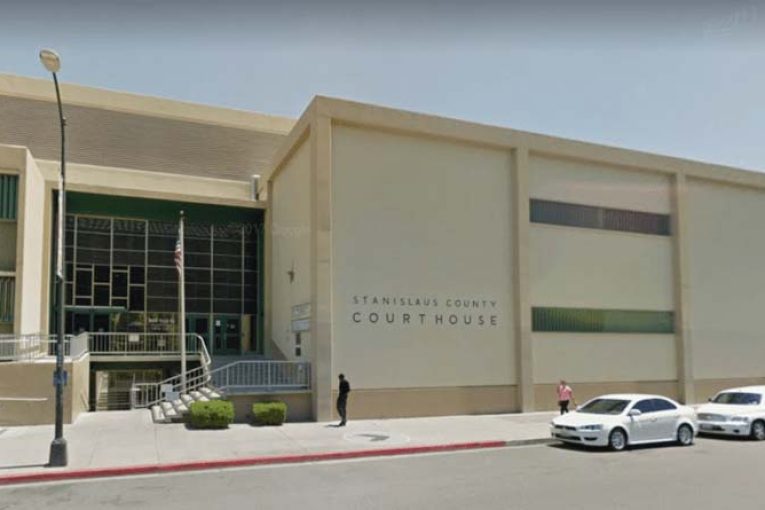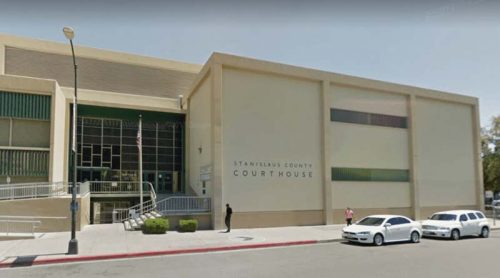

By Kyndall Dowell and Sofia Hosseinzadeh
MODESTO, CA – Modesto Police Officer Ryan Vander Tuig, during a jury trial Monday in Stanislaus County Superior Court, admitted to not reading a Stanislaus County woman her Miranda rights when questioning her twice at the scene of the crime
On Sept. 22, 2022 Vander Tuig responded to an altercation between the accused and a separate party. When the officer arrived at the scene, he said he initially spoke to the accused to understand the context of the altercation.
After getting a different account of the situation from the complaining witnesses, Vander Tuig questioned the accused again about what had happened. The accused was ultimately charged with a felony.
Defense attorney Justin Ward questioned Officer Vander Tuig about whether the accused knew her Miranda rights at any point during the altercation, which Vander Tuig did not know.
Defense attorney Ward also accused Officer Vander Tuig of siding with the complaining witnesses’ story after the officer argued, “I believed their (the complaining witness’) information was true.”
Defense counsel continued his questioning about how Officer Vander Tuig performed during the altercation adding, “You separated (the accused) and took her off to a side area.” Defense attorney Ward argued this choice could imply the accused may be arrested.
“Sometimes information can get misconstrued … If I have differing information I want to make sure I understand… I got to ask clarifying questions,” Officer Vander Tuig testified, defending his choice to seclude the accused, claiming, “I want to make sure (the accused’s) statement was clear to me before I made the decision that anyone was going to be arrested.”
“At that point she was separated from her family, she was questioned, and she was confronted with statements that the complaining witness made and asked to respond to those” defense attorney Ward argued.
Ward added, “In that situation the officer is attempting to elicit incriminating responses,” assuming that “a reasonable person in that situation would assume they are not free to leave. If her rights had been read to her, she would have known ‘I don’t have to speak to him’ and that did not occur at that point.
“My request is (to narrow the emphasis on) the second questioning that took place because at that point the officer in his mind had already had a narrative of the events that he believed to be true that differed from (the accused),” defense counsel Ward concluded.
In his argument against the defense motion, Deputy District Attorney Zynal Aziz said “these were investigation questions, the officer testified that he spoke (the accused) the first time, went to speak to the victims and returned to clarify things,”
DDA Aziz continued, stating, “He testified that (the accused) was not under arrest. He even starts off with the first thing he asked her which was ‘Can I talk to you over here?’ The only reason she was separated from the family was to get a clear response… At no point was the accused arrested until after the conclusion of the investigation.”
Judge Kellee Westbrook supported the defense argument, noting, “It sounds like the officer was trying to ascertain what happened before he made an arresting decision. Actually it’s irrelevant whether he decided if she was going to be arrested or not.
“It was the conduct that was displayed by the officer was that he was just doing the investigation and she was not cuffed, she wasn’t in the patrol vehicle or anything like that,” Judge Westbrook concluded.
According to the Cornell Law School, a police officer is required to read an individual their Miranda rights after being detained.
The trial is ongoing this week.